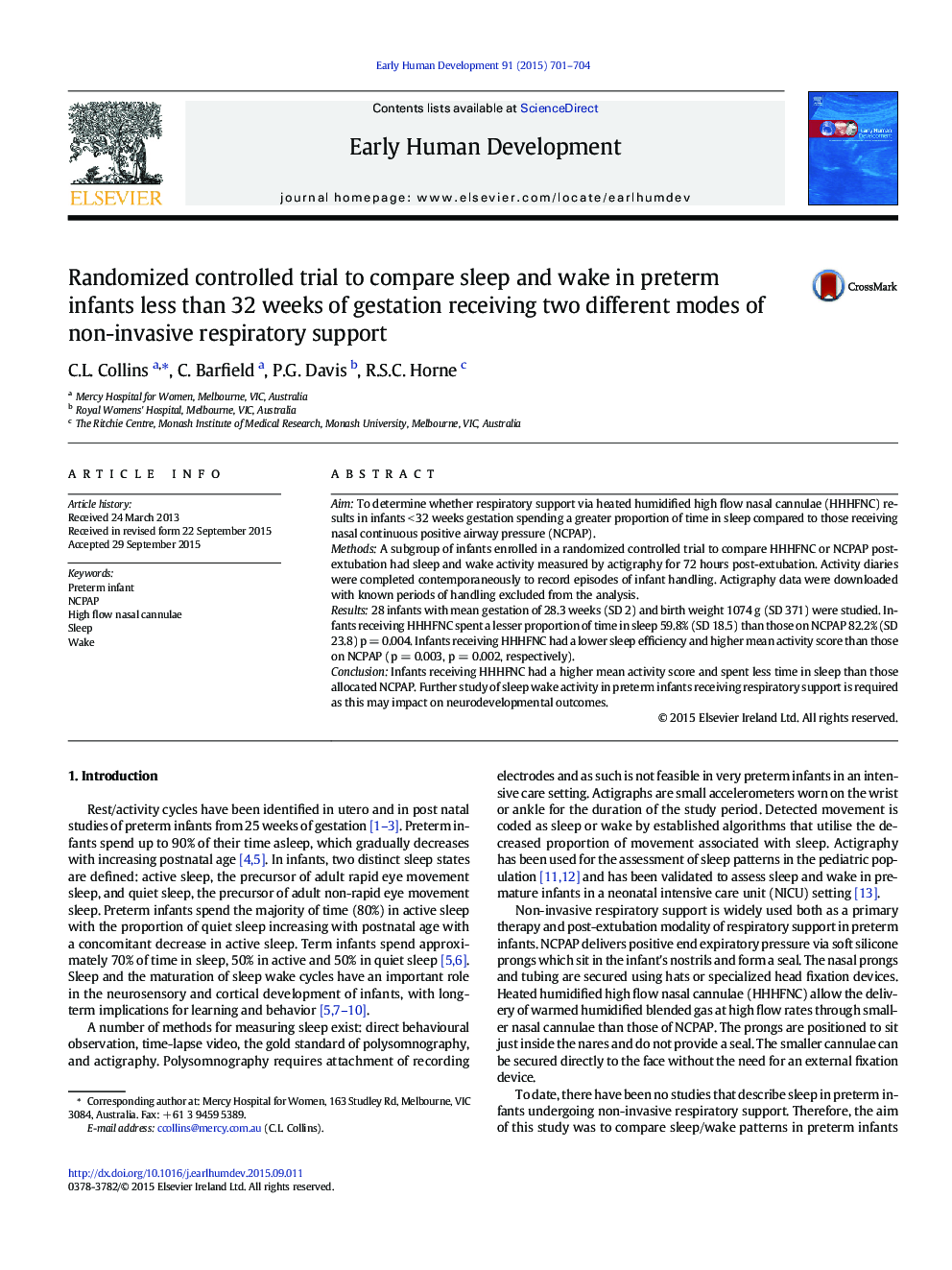| Article ID | Journal | Published Year | Pages | File Type |
|---|---|---|---|---|
| 3916703 | Early Human Development | 2015 | 4 Pages |
•Study to examine sleep in preterm infants receiving respiratory support.•28 infants enrolled in a randomized controlled trial to compare HHHFNC or NCPAP post-extubation had sleep and wake activity measured by actigraphy for 72 hours post-extubation.•Infants receiving HHHFNC had a higher mean activity score and spent less time in sleep than those allocated NCPAP.•Further study of sleep wake activity in preterm infants receiving respiratory support is required as this may impact on neurodevelopmental outcomes.
AimTo determine whether respiratory support via heated humidified high flow nasal cannulae (HHHFNC) results in infants < 32 weeks gestation spending a greater proportion of time in sleep compared to those receiving nasal continuous positive airway pressure (NCPAP).MethodsA subgroup of infants enrolled in a randomized controlled trial to compare HHHFNC or NCPAP post-extubation had sleep and wake activity measured by actigraphy for 72 hours post-extubation. Activity diaries were completed contemporaneously to record episodes of infant handling. Actigraphy data were downloaded with known periods of handling excluded from the analysis.Results28 infants with mean gestation of 28.3 weeks (SD 2) and birth weight 1074 g (SD 371) were studied. Infants receiving HHHFNC spent a lesser proportion of time in sleep 59.8% (SD 18.5) than those on NCPAP 82.2% (SD 23.8) p = 0.004. Infants receiving HHHFNC had a lower sleep efficiency and higher mean activity score than those on NCPAP (p = 0.003, p = 0.002, respectively).ConclusionInfants receiving HHHFNC had a higher mean activity score and spent less time in sleep than those allocated NCPAP. Further study of sleep wake activity in preterm infants receiving respiratory support is required as this may impact on neurodevelopmental outcomes.
